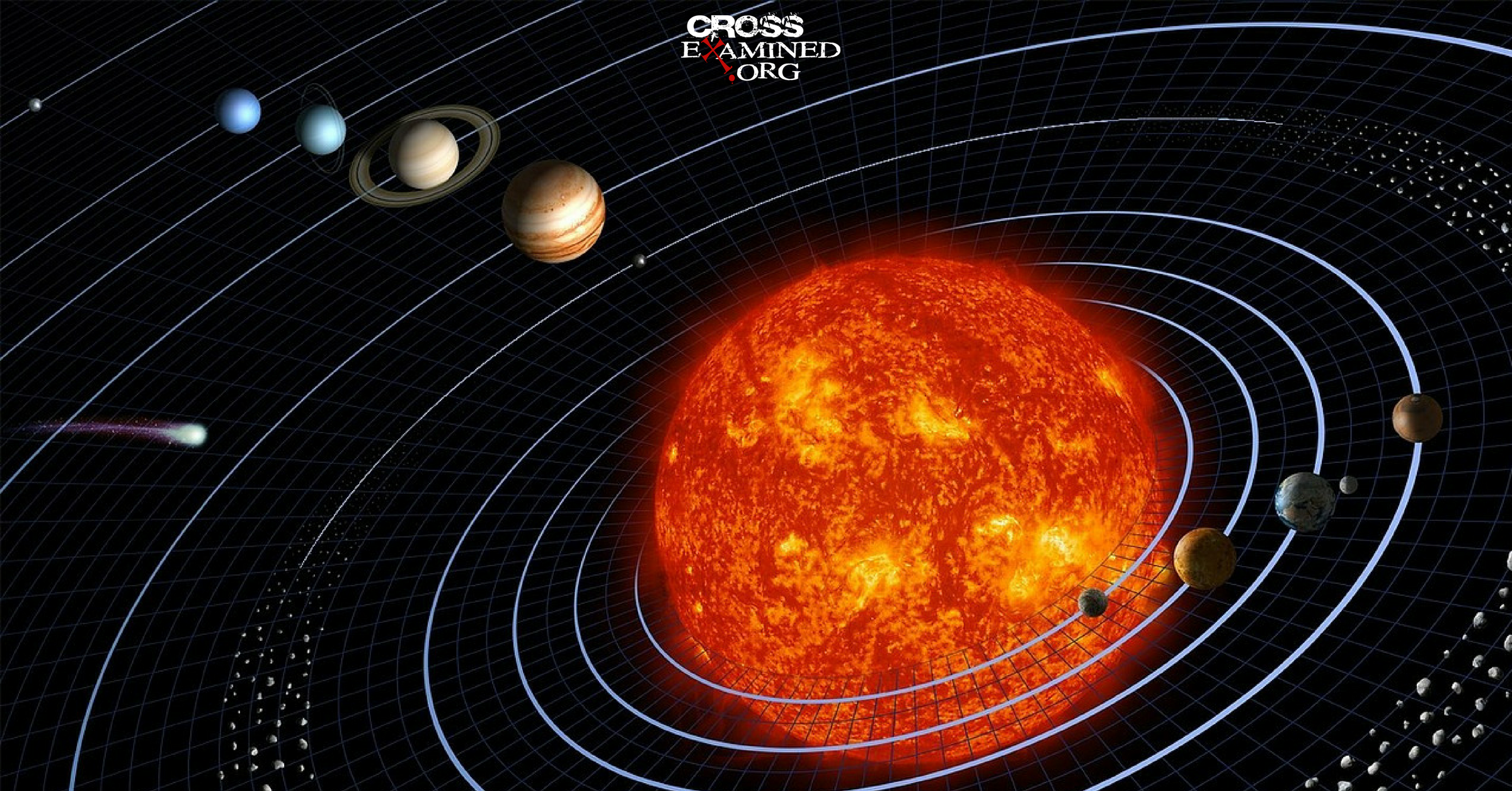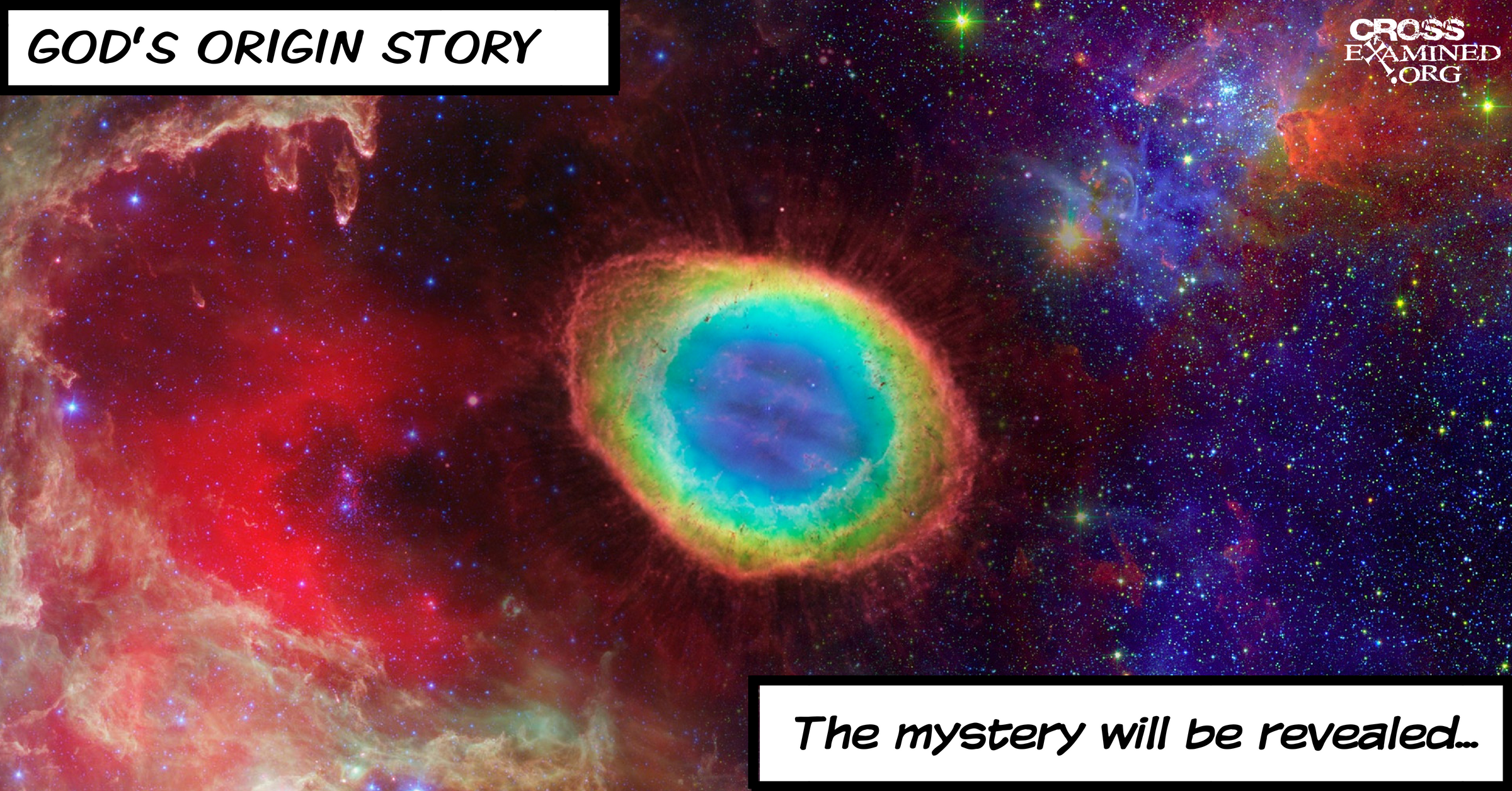By Evan Minton
This is part 9 in a blog post series on the historical evidence for Jesus’ resurrection. In parts 3, 4, 5, and 6, we’ve seen powerful historical evidence that (1) Jesus died by Roman crucifixion, that (2) His tomb was found empty the following Sunday morning, that (3) the twelve disciples believed they saw Jesus alive after His death, that (4) a church persecutor named Paul converted to Christianity on the basis of what he perceived to be an appearance of the risen Jesus, and (5) a skeptic named James converted to Christianity on the basis of what he perceived to be appearance of the risen Jesus.
In part 7, we looked at various ways that skeptics have tried to account for the minimal facts, and we saw that they all fail. No naturalistic theory can account for all 5 of the minimal facts. The only theory that can account for them is not a naturalistic theory at all, but a supernaturalistic theory: God raised Jesus from the dead. The hypothesis that God The Father miraculous raised Jesus to life explains all of the data perfectly. It explains why Jesus’ tomb was found empty, why His disciples (and Mary Magdalene) believed they saw Him alive after His death. It explains why a hard-headed, hard-hearted terrorist like Saul of Tarsus would become one of the people he sought to destroy virtually overnight, and it would explain why James, despite being skeptical of his brother’s claims, would become such a firm believer that he would be willing to die a martyr’s death. The resurrection explains every piece of data that is in need of explanation, but even the best of the naturalistic theories could explain one of the five facts at most. The majority didn’t even explain that many. The “He Is Risen” hypothesis has exhaustive explanatory scope and power and ergo outshines any other proposed explanation. In part 8 (the previous blog post), we saw that even though some may have some lingering questions about the resurrection (e.g. why didn’t Jesus appear to convince his enemies?), these questions had good answers, but most of them wouldn’t have affected the case for the resurrection even if they went unanswered.
The state of scholarship today regarding the historical Jesus is this; the 5 minimal facts are true, skeptical non-Christian historians can’t come up with a good way to explain them, but they won’t admit a resurrection.
Why is this? It could be (1) they’re on a happiness quest, not a truth quest. They just don’t want it to be true. (2) They have some lingering questions like the ones I addressed in the previous blog post.
I answered some of the more minor lingering questions in the previous blog post, but in this blog post, I’ll address two more. Nine out of ten of the unanswered questions in the previous blog post wouldn’t have affected the case even if left unanswered, but there are a couple of remaining objections that would impact the case if left unrefuted.
Objection 1: The Resurrection Is So Improbable, We Can Never Conclude That It Occurred
Some skeptics will say that we need more evidence for the resurrection than for any other event in history because the probability against a resurrection ever occurring is so extreme. After all, the vast majority of people who have ever lived have remained in their graves. They’ll say “Even though our naturalistic proposals are abysmal failures, they’re still at least more likely than a miraculous resurrection.” As a result, we can either never have enough evidence to affirm the resurrection, or at the very least we need far more evidence for it than other events. Sometimes skeptics will assert that the experience against miracles (i.e., I’ve never witnessed one, you probably haven’t either) militates against the resurrection hypothesis. The evidence for natural events far outweighs supernatural events by leaps and bounds.
If this objection succeeds, then it would seem that the skeptical scholar’s attitude of “We can’t explain it, but it’s probably not a miraculous resurrection” would be justified. What are we to say to this objection?
1: I’m Not Concerned With Probabilities, But With Explanatory Ability
I am not arguing here that a miraculous resurrection is the most probable explanation of the data, only that it is the best explanation. The resurrection is the best explanation of the facts no matter what number a person might ascribe to its probability. The resurrection is the best explanation because it explains all of the data, every single fact, while the naturalistic explanations we looked at in part 7 and fail miserably. The resurrection succeeds in explanatory power. Moreover, it also succeeds in explanatory scope. Even the best of the naturalistic explanations explain, at most, one, but most of them don’t even explain that many. Most of them explain 0 of the facts. Every single possible naturalistic theory one could come up with fails, but the resurrection, the supernaturalistic explanation, succeeds. And therefore, we ought to conclude that this hypothesis is the true explanation. Detective Sherlock Holmes would agree with me. Sherlock Holmes once said, “Once you eliminate the impossible, whatever remains, no matter how improbable, must be the truth.” (emphasis mine).[1] The Resurrection is the only explanation that remains, and it’s the only one that adequately accounts for all five facts. Ergo, in Detective Holmes’ reasoning, it must be the truth. If you can think of another explanation, be my guest, but until then, I’m sticking with “He is risen”.
It’s not ad hoc or contrived. It’s plausible in light of the religious-historical context of Jesus’ life and claims (i.e. His claim to be God, see here). It outstrips its rival theories in the aforementioned. It passes all 6 of C.B Mcullah’s tests for a viable historical theory. And therefore, I believe we are epistemologically warranted in affirming that it occurred. It’s the only hypothesis that works! I don’t care about probability. To quote General Han Solo “Don’t tell me the odds,” instead, give me a viable naturalistic theory. If you can’t, and if the best and brightest minds in scholarship haven’t been able to after all this time, then maybe, just maybe, Jesus rose from the dead.
2: If Jesus Did Not Rise From The Dead, Either The Minimal Facts Shouldn’t Exist Or A Naturalistic Theory Should Be Able To Explain Them
I would argue that if Jesus didn’t rise from the dead, then it’s extremely improbable that the minimal facts should be facts. I would argue that in light of the hypothesis “Jesus did not rise from the dead,” then His tomb should be occupied, His disciples should never have claimed and come to believe that they had seen him, and Paul and James should have remained skeptical the rest of their lives.
Here’s an analogy; let’s say that a woman is brought before a jury on charges of murder. She’s accused of having killed her young son. Now, at the start, you might think that it’s extremely unlikely that she is guilty. After all, the vast majority of mothers who’ve ever lived do not harm their children. They love and care for them. In light of this background information, the claim that she is guilty is enormously improbable, and you’d be justified in thinking that if that background knowledge was all you had to go on. However, investigators found a bloody knife in the back seat of her car next to a mud-covered shovel. In her house, they found a pair of pants that also had been chemically spot cleaned. They also have several eyewitnesses who said that they heard a child screaming just before seeing the defendant carrying a black garbage bag and a shovel out her house in the middle of the night, the same night as the murder. When investigators found the dead child, he was in a black garbage bag. The defendant also had a history of mental illness and domestic violence. In light of these “minimal facts,” the claim “She is not guilty” becomes improbable. The defendant’s attorney throughout every alternative explanation he could think of, but the Jury all saw the various holes in them and rejected them. They knew that the claim “This woman murdered her child” could explain all of the evidence. Even the best of the defense attorney’s explanations could account for one piece of evidence at the crime scene at most, but the majority of his alternative explanations didn’t even go that far. The only explanation that worked is “This woman murdered her child.”
Now, it would be an invalid move on the part of the defense attorney to argue that the majority of mothers care for their children rather than killing them, and he’s never witnessed a woman murder her child, and so the probability against any mother ever killing her child is so great that they should return with a “not guilty” verdict. Sure, the hypothesis “this woman killed her child” is improbable in light of the background information that mothers usually don’t kill their sons and that we’ve personally never witnessed a mother kill her son, but the guilty verdict is still justified.
In fact, the existence of the evidence is improbable if she is not guilty. If she’s not guilty, the detectives should not have found what they found. If she didn’t do it, what are the odds that “the minimal facts” at the trial (the blood-covered knife in the back of the car, the muddy shovel in the trunk, the dead child being found in a black garbage bag, the eyewitness statements of her leaving the house with a black garbage bag and shovel, and the history of mental illness and domestic violence) should all exist? In the same way, the existence of the minimal facts (2) Jesus’ Empty Tomb, (3) Postmortem Appearances To The Disciples, (4) Postmortem Appearance To The Skeptic James, and (5) the postmortem appearance to Paul, should not exist if Jesus did not rise from the dead. It’s enormously improbable that these five facts would be true if Jesus did not rise from the dead.
At the very least, if the woman didn’t kill her child, there should be a viable alternative theory than “she is guilty.” Likewise, there should at least be a viable explanation for the minimal facts than “He is risen.” Alas, there is no other explanation.
3: The Existence Of God Bolsters The Probability Of A Resurrection
The objection I’m addressing in this subsection would never be made by Muslims or adherents to Judaism. Why? Because they believe miracles can, do, and have occurred. Why? Because they believe that a God powerful enough to perform miracles exist. They would object to the resurrection on theological grounds, but not on the grounds that an event like this is improbable.
If an omnipotent God exists, then the likelihood of this God raising Jesus from the dead increases. Of course, I think the resurrection can be an argument for the existence of God in and of itself,[2] but nevertheless, if God’s existence can be demonstrated, any improbability of a miraculous resurrection shrinks drastically. I have argued in several articles on CerebralFaith.blogspot.com and in my book Inference To The One True God: Why I Believe In Jesus Instead Of Other Gods that there are several good arguments for the existence of God. And in my book, I argue that only the Christian God matches the attributes that the God that these syllogistic arguments prove exists.
Conclusion
Imagine a scale in your mind’s eye and picture bricks on each side of the scale. On one side of the scale, the bricks are labeled, “The Existence Of God”, “The Five Minimal Facts”, “No Theory Other Than The Resurrection Hypothesis can explain the 5 minimal facts”, “Jesus made claims to divinity prior to being executed”[3], and “Jesus Predicted His Resurrection”[4]. On the other side, there are bricks labeled, “The majority of dead men stay dead,” “I’ve never personally seen a miracle,” “I have a cosmic authority problem.” Okay, I’m joking about that last one.
Which side of the scale is leaning more? The side in favor of Jesus’ miraculous resurrection. In light of the full scope of the evidence, in light of all the scale’s “bricks,” Jesus’ resurrection becomes more probable than not. Now, it’s true that I haven’t demonstrated that all of the aforementioned bricks are there in this series, but they are there, and I talk about one of them in footnote No. 5 and the other in Appendix A (of the e-book adaption of this series). When you take all of the data into consideration, Jesus’ resurrection comes out to be probable.
By the way, William Lane Craig responds to this objection in Part 23 of “The Doctrine Of Christ” section of his Defenders 2 class. But it’s rather technical. I gave a more accessible response, but for those interested in a more technical response, click here.
Objection 2: Jesus Was Just Plagiarized From Dying And Rising Gods Of Pagan Religions
The irony of this blog post is that I’m addressing two different objections that come from two different groups of people. The first one is made widely by skeptical historians and scholars, but the second one is only reported by lay people, skeptics you encounter in internet chat rooms and on social media. No scholar would ever put forth this objection.
What is the objection? Well, if you surveyed atheist blogs at all, you’ve probably heard that Jesus is just a copy of pagan gods in mythology. Jesus’ story mirrors the story of Horus, Mithras, Krishna, and others. Therefore, Jesus’ resurrection isn’t a historical event, but a plagiarized story. Many skeptics use this argument to go so far as to say Jesus of Nazareth didn’t even exist at all! This argument was popularized by the movie Zeitgeist. There are several problems with this claim.
1: The similarities are so vague, claims of plagiarism are implausible
When you actually compare the gospels’ claims about Jesus with the stories of Horus, Mithras, etc. what you find is that (A) some of these similarities don’t exist at all, and (B) the ones that do are so vague and ambiguous that it’s a stretch to say that the New Testament copied these stories.
Let’s look at just a few examples: One example is that Dionysius is said to have died and risen again like Jesus. But when you examine the stories, you find that Dyonisis wasn’t miraculously raised from the dead by his deity Father, but that his mother pieced him back together. Other stories say that Dionysus was killed by Zeus swallowing his heart and his heart was made into a potion given to Semele. Does this sound like Jesus at all? Dionysis was born on December 25th just like Jesus. This proves plagiarism, right? Well, first of all, it isn’t strange for multiple people to share the same birthday. I share a birthday with actor Zachary Quinto, but that doesn’t mean that if biographies were written about our lives that you could claim one copied the other. Secondly, The Bible never says that Jesus was born on December 25th. That date for Christmas was chosen by The Pope hundreds of years after Jesus was born.[5] Most modern scholars believe Jesus was born in the summer, sometime between June and September. The people behind Zeitgeist were so ignorant of the facts that they didn’t even know The Bible didn’t give us Jesus’ birthday date!
It is said that Mithras was born of a virgin, just like Jesus. Newsflash: Mithras was born out of a rock. Now, I guess technically one could say that since rocks can’t have sex, the rock was a virgin, and therefore you do have a virgin birth. But by that logic, Frosty The Snowman was also born of a virgin since I’m pretty sure that old soot hat of his wasn’t gettin’ any! This is ridiculous. The birth of Mithras was nothing like the birth of Jesus. Jesus was born of a human woman, not a rock.
What about Horus? During his battle with Set, he lost an eye, but he never died. Since he never died, he couldn’t be resurrected. Death is a prerequisite to resurrection.
Osiris was killed by his brother, chopped up into 14 pieces and the pieces were scattered all over Egypt. The goddess Isis retrieved all of these pieces (except for one) and put him back together again. Moreover, Osiris wasn’t resurrected but merely given the status as god of the gloomy underworld.[6] Now, does this sound like Jesus’ death and resurrection? Sure, you have a guy who is killed, and he’s brought back to life in a sense, but Jesus wasn’t chopped up into 14 pieces by one of his brothers and had his body parts scattered all over Israel, He was crucified by the Roman government. Moreover, when Jesus rose from the dead, He had all of his parts (unlike Osiris). The only thing Jesus and Osiris have in common is that they both died and came back to life, but the skeptics aren’t taking the various differences between these two into account.
These are just a few of the not-so-similarities between Jesus and pagan gods.
2: This Logic Would Bring Us To Believe Doctor Who Is Copied From Jesus
If you want to cherry pick vague similarities to prove plagiarism, then you should believe that the writers of Doctor Who ripped off The New Testament.
Doctor Who — Is 2,000 years old as of season 10 of the modern series. He even said in one episode “I’m old enough to be your messiah!”
Jesus – is 2,000 years old as of the 21st century.
Doctor Who — has an archnemesis called “The Master.”
Jesus — has an archnemesis called “The Devil.”
Doctor Who — Came to Earth from another world (Gallifrey)
Jesus — Came to Earth from another world (Heaven).
Doctor Who — called a Time “Lord.”
Jesus — Called “Lord”
Doctor Who — traveled around with many companions.
Jesus — Traveled around with many companions.
Doctor Who — Regenerates when he is fatally wounded.
Jesus — Rose from the dead.
Doctor Who — Isn’t recognized by people who knew him prior to regenerating (e.g. Brigadier Lethbridge Stewart).
Jesus — wasn’t recognized by the two men on the road to Emaus after rising from the dead.
You can see how ridiculous this line of argumentation is. It’s no wonder why professional historians and scholars of ancient history give this objection no credence. Yes, there are some similarities between The Doctor and Jesus, but they’re vague similarities. The differences between them far outnumber whatever they might have in common. The same goes for the pagan myths and Jesus.
3: This Logic Would Lead Us To Believe The Titanic Sinking Wasn’t A Historical Event
A long time ago, there was an incredible tragedy that occurred. A huge passenger ship, which people said was unsinkable, on a cold night in the North Atlantic about 200 miles off of Newfoundland, struck an iceberg and sank. Many people died because there weren’t enough lifeboats. Now, you believe I’m talking about The Titanic, right? Nope. I’m talking about a ship called Titan, in a novel written in 1898, fourteen years before the wreck of the Titanic, called The Wreck of the Titan written by a person named Morgan Robertson.
Unlike Jesus and the pagan gods, the parallels between the fiction of The Wreck Of The Titan and the historical event of The Titanic actually are striking! However, I don’t know of anyone who would argue that there never really was a ship called The Titanic that sank. Thanks to this silly theory, I now have Celene Dion’s “My Heart Will Go On” playing in my mind now. Thanks, atheists who don’t do their research.
4: Most Of These Stories Come After The Rise Of Christianity
As if the above 3 points weren’t enough to refute this silly objection, most of the pagan myths post-date Christianity. Therefore, if any plagiarizing were being done, it would be done in the opposite direction![7]
5: Jews were committed to an exclusive faith.
Jews were adamantly committed to their religious beliefs and traditions and refused to blend their religious ideas and traditions with that of others (a view known as syncretism). Mystery religions were inclusive. They would adopt any doctrine or theological concept that they wanted to. They were very loose and didn’t have a measure of orthodoxy, but Judaism and Christianity were exclusive. In general, Jewish people adamantly resisted outside religious ideas, most likely due to the fact that they had, by the time of the first century, learned from The Old Testament that God did not tolerate mingling with other nations.
In Antiquity of the Jews, the Jewish historian Josephus talks about an event in which the Romans try to force something on the Jews and how the Jews responded to it.:
“But now Pilate, the procurator of Judea, removed the army from Cesarea to Jerusalem, to take their winter quarters there, in order to abolish the Jewish laws. So he introduced Caesar’s effigies, which were upon the ensigns, and brought them into the city; whereas our law forbids us the very making of images; on which account the former procurators were wont to make their entry into the city with such ensigns as had not those ornaments. Pilate was the first who brought those images to Jerusalem, and set them up there; which was done without the knowledge of the people, because it was done in the nighttime; but as soon as they knew it, they came in multitudes to Cesarea, and interceded with Pilate many days, that he would remove the images; and when he would not grant their requests, because it would tend to the injury of Caesar, while yet they persevered in their request, on the sixth day he ordered his soldiers to have their weapons privately, while he came and sat upon his judgment seat, which seat was so prepared in the open place of the city, that it concealed the army that lay ready to oppress them; and when the Jews petitioned him again, he gave a signal to the soldiers to encompass them round, and threatened that their punishment should be no less than immediate death, unless they would leave off disturbing him, and go their ways home. But they threw themselves upon the ground, and laid their necks bare, and said they would take their death very willingly, rather than the wisdom of their laws should be transgressed; upon which Pilate was deeply affected with their firm resolution to keep their laws inviolable, and presently commanded the images to be carried back from Jerusalem to Cesarea.” (Josephus, Works Of Flavius Josephus, 18:55–59)
It is undeniable that Christianity sprung up out of a thoroughly Jewish culture. The idea that a group of devout Jews would see ideas in other religions and then adopt them into their own religious views is incredibly implausible in light of what we know about ancient Jews.
6: Even If This Went Unanswered, It Wouldn’t Hurt The Case For The Resurrection
The 5 minimal facts were true even if the similarities between Jesus and these pagan myths were as strong as the chatroom atheists would have us believe. None of the arguments given in favor of Jesus’ death by crucifixion, his empty tomb, or the apostles claiming and believing to have seen him alive after his death would be affected by this objection even if went unanswered.
As I said in part 8, poorly attested miracles (as the pagan myths certainly are) cannot be used to rule out well-evidenced ones.
Conclusion
These two last-ditch efforts on the part of skeptics to keep us from being justified in believing in Jesus’ resurrection are failures.
To skeptics: are you convinced yet? If so, what are you going to do about it? Now that you’re convinced, what are you going to do with Jesus? Check out the next and final blog post in this series to know where to go from here.
Notes
[1] Arthur Conan Doyle, The Sign of the Four, ch. 6 (1890) Sherlock Holmes in The Sign of the Four (Doubleday p. 111)
[2] My argument goes like this
1 – If Jesus rose from the dead, then a miracle has occurred.
2 – If a miracle has occurred, then there exists a miracle working God.
3 – Jesus rose from the dead.
4 – Therefore, a miracle has occurred.
5 – Therefore, God exists
In order for the conclusion to be true, the three premises have to be true. I think everyone would agree with premises 1 and 2. The only debatable one is premise three. Premise three can be arrived at through The Minimal Facts Approach.
[3] See the article “A Quick Case For Jesus’ Divine Self Understanding” if you’re reading this on Cerebral Faith. If you’re reading the e-book adaption of this blog series, see Appendix A. The blog post will be found copy-pasted there, though it will be edited slightly to avoid repetitiousness (e.g I’ll remove the explanation of historical methodology).
[4] Did Jesus Predict His Resurrection? There are at least four reasons for affirming that He did. First of all, Jesus’ predictions concerning his resurrection are usually denied because the resurrection itself is denied as a historical event. If the resurrection is historical, and we’ve seen in parts 2-7 that it most likely is, then this is not a good reason for rejecting the prediction accounts. Secondly, when Jesus predicted his resurrection from the dead, the gospels depict the disciples as being confused, as not knowing what the heck Jesus is talking about (see Mark 8:31–33;9:31–32; 14:27– 31; Luke 24:13–24). On the basis of the principle of embarrassment, we can conclude that these instances are historical. The gospel authors wouldn’t depict the disciples as dim-witted. If Mark really wrote Mark and got his gospel from Peter (as church tradition says), then it would be especially unreasonable to believe Mark 8:31-33, Mark 9:31-32, and Mark 14:27-31 to be made up. Can you imagine Peter telling Mark “Hey, write this down! Even though Jesus explained his death and resurrection to us over and over, we just didn’t get it.” if it weren’t true? However, even if one wants to attribute these to some early church fathers or something, the principle of embarrassment can still be applied, as the early church had a high respect for the disciples. Thirdly, Jesus’ use of the title “Son of Man” in reference to his resurrection predictions (Mark 8:31; 9:31; 10:33–34) weighs in favor of authenticity. As I point out in Appendix A (of the e-book adaption of this blog post series), this saying of Jesus is multiply attested. And moreover, the principle of dissimilarity applies since Jesus was never called “Son Of Man” anywhere else in The New Testament, and the early church fathers never referred to Jesus by this title. If this saying were made up by the early church and retroactively inserted into the mouth of Jesus, we would expect the early church fathers and NT epistles to use this title of Jesus more frequently. Finally, the principle of multiple attestations applies to Jesus predicting that He would get out of his grave (see Matthew 12:38–40; 16:1–4,21; 17:23; 20:19; Mark 8:31–32; 9:31; 10:33; Luke 9:22; John 2:18–21. Cf. Mark 14:58; Luke 11:29–30).
[5] https://www.whychristmas.com/customs/25th.shtml
[6] My sources for this information: https://www.apologeticspress.org/apcontent.aspx?category=10&article=186, and https://www.reasonablefaith.org/writings/question-answer/jesus-and-pagan-mythology/ , and http://i.stack.imgur.com/29UE7.jpg, and “The Case For The Resurrection Of Jesus” by Gary Habermas and Michael Licona, pages 90-91, Kregle.
[7] I have several sources for this information. (1) – Gary R. Habermas, “Resurrection Claims in Non-Christian Religions,” Journal of Religious Studies 25 (1989): 167–77. (2) – Günter Wagner, Pauline Baptism and the Pagan Mysteries (Edinburgh: Oliver and Boyd, 1967), 197–201. (3) Gary Habermas and Michael Licona, “The Case For The Resurrection Of Jesus,” page 90, Kregle.
Original Blog Source: http://bit.ly/2l364c3











